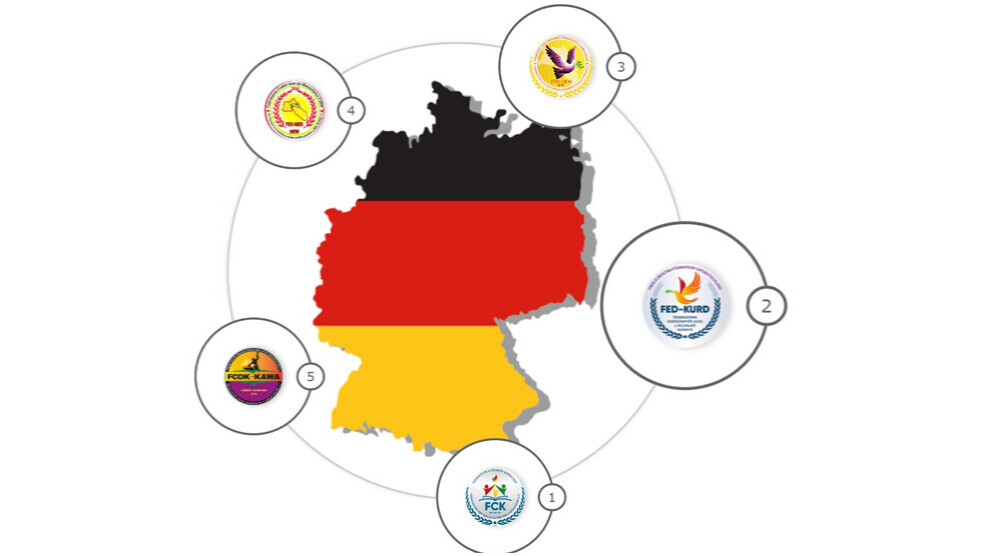Illegal monitoring of the Kurdish associations in Germany
Since 1994, information belonging to Kurdish organizations in Germany has been unlawfully exchanged with the intelligence and security directorate.
Since 1994, information belonging to Kurdish organizations in Germany has been unlawfully exchanged with the intelligence and security directorate.

Information on associations having a majority of foreign members is submitted to the Federal Administration Office in Cologne in accordance with a "law on associations" passed in Germany in 1966. "As required by law," the names and addresses of the associations' board of directors, as well as their statutes, are sent to the Federal Administration Office.
Until now, this department has received information from around 15 thousand associations. This technique, which involves profiling all organizations with immigrant members, is not employed for associations with a majority of German members.
With a proposal submitted to the Federal Assembly in 2020, the Left Party, one of the 2020 opposition parties, demanded that the law be changed, saying "End the marginalization of immigrants." However, both the government and opposition parties voted against the Left Party's motion, with votes from the CDU/CSU, SPD, FDP, and AfD.
THE DECISION REGARDING KURDS IS NOT FOUND
Since 1994, the Federal Administration Office has transmitted information about Kurdish associations to the country's internal intelligence agency, the Constitutional Protection Organization, and the Security Directorate. It has been revealed that information on 209 Kurdish organizations has been exchanged with intelligence and security services over the last three years.
In a statement issued in 2019, Stephan Mayer, the undersecretary of the Ministry of Interior at the time, noted that Kurdish associations were being monitored due to the PKK ban, and that "this is an obligation.” However, there was no bylaw requiring the automatic exchange and monitoring of information belonging to Kurdish associations with intelligence and security organizations.
IS THE INFORMATION SHARED WITH MIT?
Mahmut Özdemir, Undersecretary of the Ministry of Interior, who was asked by Left Party Deputy Gökay Akbulut if they had “the circular from 1994", said that "We have been unable to find the requested circular." Following this answer, federal parliamentarian Akbulut declared that security units monitoring and profiling Kurdish associations is unacceptable and should be stopped immediately.
It is also unclear whether information gathered about Kurdish associations and organizations in practically every German city is shared with the Turkish intelligence MIT. While the Scholz government said last April, "Information belonging to foreign associations was not shared with foreign intelligence services," there are several severe doubts regarding this. Because it had previously been revealed that German security forces shared investigation files on Kurdish and other Turkish socialist movements with the Turkish state through "security cooperation" agreements.